Date of Death:23 July 1966, New York City, New York, USA (coronary occlusion)
Birth Name: Edward Montgomery Clift
Nickname: Monty
Height: 5' 10" (1.78 m)
Mini Biography
Monty was born just after his twin sister Roberta and eighteen months after his brother Brooks Clift. Their father William made a lot of money in banking but was quite poor during the depression. Their mother Ethel "Sunny" was born out of wedlock and spent much of her life and the family fortune finding her illustrious southern lineage and raising her children as aristocrats. At 13, Monty appeared on Broadway ("Fly Away Home"), and chose to remain in the New York theater for over ten years before finally succumbing to Hollywood. He gained excellent theatrical notices and soon piqued the interests of numerous lovelorn actresses; their advances met with awkward conflict. While working in New York in the early 1940s, he met wealthy former Broadway star Libby Holman. She developed an intense decade-plus obsession over the young actor, even financing an experimental play, "Mexican Mural" for him. It was ironic his relationship with the bisexual middle-aged Holman would be the principal (and likely the last) heterosexual relationship of his life and only cause him further anguish over his sexuality. She would wield considerable influence over the early part of his film career, advising him in decisions to decline lead roles in Sunset Blvd. (1950), (originally written specifically for him; the story perhaps hitting a little too close to home) and High Noon (1952). His long apprenticeship on stage made him a thoroughly accomplished actor, notable for the intensity with which he researched and approached his roles. By the early 1950's he was exclusively homosexual, though he continued to maintain a number of close friendships with theater women (heavily promoted by studio publicists). His film debut was Red River (1948) with John Wayne quickly followed by his early personal success The Search (1948) (Oscar nominations for this, A Place in the Sun (1951), From Here to Eternity (1953) and Judgment at Nuremberg (1961)). By 1950, he was troubled with allergies and colitis (the army had rejected him in WWII for chronic diarrhea) and, along with pill problems, he was alcoholic. He spent a great deal of time and money on psychiatry. In 1956, during filming of Raintree County (1957), he ran his Chevrolet into a tree after leaving a party at Elizabeth Taylor's; it was she who saved him from choking by pulling out two teeth lodged in his throat. His smashed face was rebuilt, he reconciled with his estranged father, but he continued bedeviled by dependency on drugs and his unrelenting guilt over his homosexuality. With his Hollywood career in an irreversible slide (despite giving an occasional riveting performance, such as in Stanley Kramer's Judgment at Nuremberg (1961)), Monty returned to New York and tried to slowly develop a somewhat more sensible lifestyle in his brownstone. He was set to play in Taylor's Reflections in a Golden Eye (1967), when his companion Lorenzo James found him lying nude on top of his bed, dead from what the autopsy called "occlusive coronary artery disease." His death was called the longest suicide in history by famed acting teacher, Robert Lewis.
Trivia
1995: Chosen by Empire magazine as one of the 100 Sexiest Stars in film history (#29).
He is referred to in the Jets to Brazil song, "Conrad" on their album, "Orange Rhyming Dictionary".
He is the subject of the song "The Right Profile" on The Clash's album "London Calling".
He is the subject of R.E.M.'s song "Monty Got a Raw Deal", from their LP "Automatic For the People".
Was a close friend of Elizabeth Taylor, Kevin McCarthy, Marilyn Monroe and Roddy McDowall.
The release of Red River (1948) made him an overnight sensation and instant star. He embodied a new type of man on screen, the beautiful, sensual and vulnerable man that seemed to appeal to women and men alike. After A Place in the Sun (1951) came out he was Hollywood's hottest male star and adored by millions. He looked incredible and was a fine actor, a rare combination. His only rival in this regard during the next few years was Marlon Brando, whose career turned out to be more stable and successful in the end. Clift's mental problems prevented him from staying at the top, as his drinking and drug problem began to affect his acting and bankability. The loss of his dashing looks in a well publicized road accident during the filming of Raintree County (1957) didn't help, either. What followed could be described as the longest suicide in show-business history.
Interred at Quaker Cemetery, Brooklyn, New York, USA.
He had so many health problems on the set of Freud (1962) that Universal sued him for the cost of the film's production delays. During the trial, the film opened and was such a huge hit that Clift's lawyers brought up the point that the film was doing well because of Clift's involvement. Clift won a lucrative settlement.
Always in high demand as an actor, he turned down the role played by William Holden in Sunset Blvd. (1950) and the part of James Dean's brother in East of Eden (1955). In 1955, alone, he passed on five Broadway plays, (among them Eugene O'Neill's "Desire Under the Elms"), and he turned down the films Desirée (1954), Friendly Persuasion (1956), Prince of Players (1955), Fahrenheit 451 (1966), Moby Dick (1956) and The Trouble with Harry (1955).
Younger brother of Brooks Clift.
He was voted the 60th Greatest Movie Star of all time by Entertainment Weekly.
Was Elizabeth Taylor's choice to play her husband, the closeted homosexual Major Weldon Penderton, in Reflections in a Golden Eye (1967). He died before the film began shooting and was replaced by Marlon Brando, who at one time was considered his only rival as an attractive leading man who was also a great actor.
In Robert Laguardia's "Monty" (1977), the first published biography, Laguardia tells of how Clift was discomfited when he initially met co-star Burt Lancaster on the set of From Here to Eternity (1953). Lancaster was in awe of Monty and was so nervous, he actually shook during their first scene (as also mentioned in Lancaster's biography).
On the set of The Young Lions (1958), Marlon Brando insisted on doing his own stunt fall after being "shot" by co-stars Clift and Dean Martin and wound up dislocating his shoulder. Clift, seeing that Brando was in pain, offered him a swig from the thermos jug he carried with him at all times. The combination of vodka and prescription drugs in the thermos helped Brando through the ordeal.
Marlon Brando, who calls him a "friend" in his autobiography, says that Clift was a tormented soul addicted to alcohol and chloral hydrate, a depressant and sedative which he drank. On the set of The Young Lions (1958), he warned Clift that he was destroying himself like Brando's own alcoholic mother had. For his part, Clift was always supportive of Brando as an actor, even when his career began faltering after Mutiny on the Bounty (1962).
Suffered from dysentery and colitis for most of his adult life.
Spoke fluent French, Italian and German.
His father was a violent, abusive, ultra-conservative bigot and did not get along with his son. As an actor, whenever Clift was playing characters snapping as they went up against ignorance or brutality, Clift was said to have acted with his father in mind as an antagonist.
One of only six actors to receive an Academy Award nomination for Best Actor for his first screen appearance. The others are Orson Welles, James Dean, Alan Arkin, Paul Muni and Lawrence Tibbett.
Hollywood folklore has it that his ghost haunts the Hollywood Roosevelt Hotel. The actor had stayed there while filming From Here to Eternity (1953).
At his near-fatal car accident in 1956, Rock Hudson, Michael Wilding and Kevin McCarthy formed a protective shield to prevent Clift's photo from being taken by photographers as he was carried from the wreck to the ambulance.
A sometime guest of Broadway legends Alfred Lunt and Lynn Fontanne at their rural retreat Ten Chimneys in Genesee Depot, Wisconsin.
Is portrayed by Jeffrey Combs in Norma Jean & Marilyn (1996) (TV)
Marilyn Monroe described him as "the only person I know who is in worse shape than I am."
Turned down Dean Martin's role in Rio Bravo (1959), which would have reunited him with his Red River (1948) co-star John Wayne.
Became good friends with Dean Martin while filming The Young Lions (1958), and Clift helped the singer, who was best known at that time as a light comedian, with rehearsing his heavy dramatic scenes. In later years, as Clift was ostracized by the Hollywood social set for his substance abuses and mental instability, Martin stuck by the troubled actor and often brought him along as his guest to parties.
Son of William Brooks Clift and wife Ethel Anderson Fogg, an illegitimate daughter of Woodbury Blair by Maria Latham Anderson, both of whom had Dutch American ancestry. Woodbury Blair was the son of Montgomery Blair, after whom his great-grandson received his middle name, and wife Mary Elizabeth Woodbury, daughter of Levi Woodbury (1789-1851), US Supreme Court, and wife Elizabeth Wendell Clapp.
Voted for Republican Thomas E. Dewey in the 1948 presidential election, but later actively campaigned for Democratic candidate Adlai Stevenson in the 1952 presidential election - much to the annoyance of his father.
He was a close friend of Elizabeth Taylor, although he greatly disliked her husband Richard Burton, and the feeling was mutual. Clift once said, "Richard Burton doesn't act, he just recites.".
In Italy, most of his early films were dubbed by Giulio Panicali, then by Giuseppe Rinaldi. He was occasionally dubbed by Gianfranco Bellini (in The Search (1948) and Judgment at Nuremberg (1961)), Nando Gazzolo (in The Young Lions (1958)) and once by Pino Locchi in Raintree County (1957).
Related to actor Michael Anderson Brown.
On the advice of his close friend Libby Holman, he turned down William Holden's role in Sunset Blvd. (1950) and Gary Cooper's role in High Noon (1952).
In the James Kirkwood novel "Hit Me With A Rainbow", early on the lead character is told that he resembles Montgomery Clift. He reflects that this has been happening often and surmises is it due to Clift's recent death.
Robert LaGuardia, in his 1988 biography "Monty," claimed that director John Huston, who had paternalistic feelings towards Clift after directing the alcoholic and emotionally troubled actor in The Misfits (1961) (1961), became sadistic towards him during the troubled Freud (1962) (1962) shoot. Basing his charges on interviews with co-star Susannah York, LaGuardia claimed that Huston kept asking Clift about the Freudian concept of "represssion," obviously alluding to Clift's repressed homosexuality. Apparently, Huston himself could not broach the idea that Monty was gay in his own mind, but subconsciously, he reacted to Monty's homosexuality quite negatively. (Marilyn Monroe had admonished Monty not to work with Huston again, finding him a sadist on the "Misfits" set. Her ex-husband Arthur Miller, on the other hand, did not fault Huston in his autobiography "Timebends," but instead, marveled about how he kept his cool during the "Misfits" shoot, which was also troubled due to Marilyn Monroe's mental illness and frequent absences from the set.) Monty's biographer thought that Huston still had paternalistic feelings towards the actor, but was subconsciously appalled at his surrogate son's homosexuality; thus, he began to torture him on the set by insisting on unnecessary retakes and that he perform his own stunts, such as climbing up a rope. Despite Monty's many problems, he always proved a trouper, and gave as much as he could, including diving into a river in his last film, The Defector (1966) (1966).
Personal Quotes [reported last words, upon being asked if he wanted to see one of his movies on TV[ Absolutely not!
What do I have to do to prove I can act?
I love the stage, but after a few months you can get tired. I would rather do three movies than play in one stage hit. I played in four flops in a row when I was about 17 and I was delighted. I was being paid to be trained.
I keep my family out of my public life because it can be an awful nuisance to them. What's my mother going to tell strangers anyway? That I was a cute baby and that she's terribly proud of me? Nuts. Who cares?
[recalling his arrival in Hollywood] I told them I wanted to choose my scripts and my directors myself. "But sweetheart," they said, "you're going to make a lot of mistakes." And I told them, "You don't understand; I want to be free to do so."
Good dialogue simply isn't enough to explain all the infinite gradations of a character. It's behavior -- it's what's going on behind the lines.
I don't want to be labeled as either a pansy or a heterosexual. Labeling is so self-limiting. We are what we do, not what we say we are.
I feel my real talent lies in directing for my later years.
[on Marilyn Monroe] Marilyn was an incredible person to act with, the most marvelous I ever worked with and I have been working for 29 years.
[on Elizabeth Taylor] Liz is the only woman I have ever met who turns me on. She feels like the other half of me.
Salary
 En la primavera de 1957 (Patricia Bosworth no especifica cuándo), Montgomery Clift vio un pase privado de Raintree County (El árbol de la vida, 1957).
En la primavera de 1957 (Patricia Bosworth no especifica cuándo), Montgomery Clift vio un pase privado de Raintree County (El árbol de la vida, 1957). Y pronosticó que el público acudiría a ver la película para comprobar "cómo estoy antes y después del accidente".
Y pronosticó que el público acudiría a ver la película para comprobar "cómo estoy antes y después del accidente". 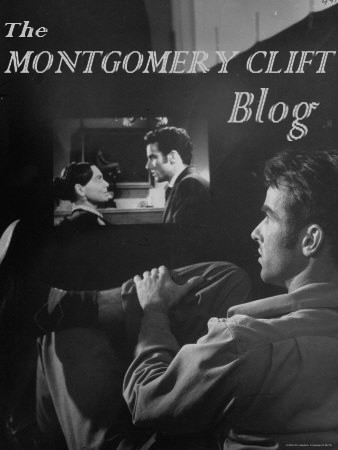

















.-+albornoz+(4)+BLOG.jpg)
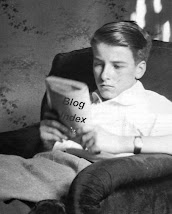
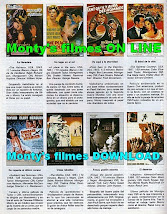


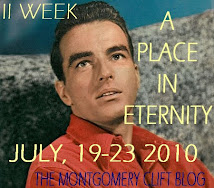











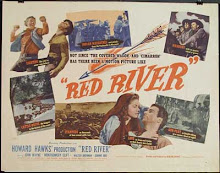
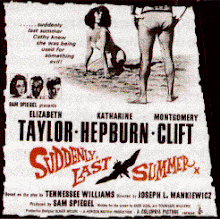



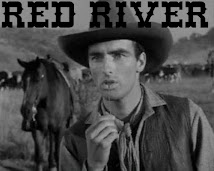
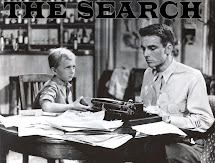

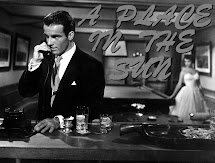2.jpg)
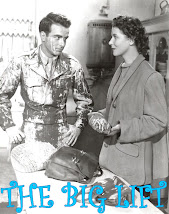.jpg)
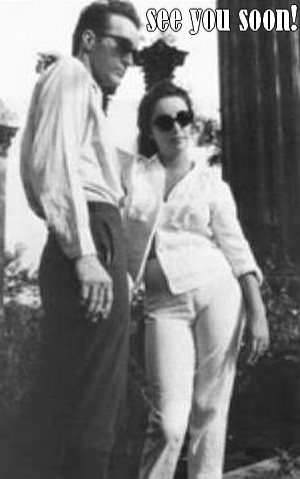

.jpg)


Mi respeto a Montgomery Clift, el proyectaba una gran vulnerabilidad en su mirada cuando actuaba, realmente maravilloso.